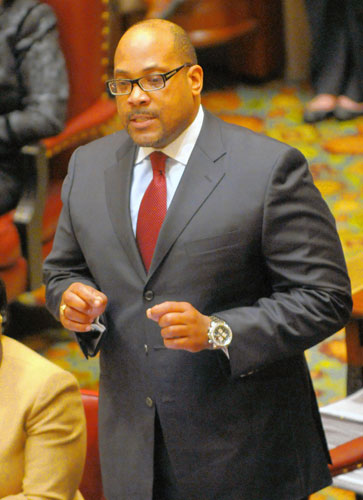Brooklyn Assembly Member Rodneyse Bichotte has derided the House of Representatives’ passage of a Republic healthcare bill that seeks to replace Obamacare as “heartless” and “irresponsible.”
Bichotte, who represents the 42nd Assembly District in Brooklyn, said the Republicans’ vote to repeal Obamacare, officially known as the Affordable Care Act, and replace it with a “deeply flawed plan,” will “completely disrupt the lives of tens of millions of Americans.”
She said taking away Americans’ healthcare is “beyond reproach.”
“The bill essentially takes us back as a country to where we were by discriminating against those with pre-existing conditions, defunds Planned Parenthood, threatens the cost and availability of employer-based health insurance, while, at the same time, benefiting the wealthy by giving them a generous tax cut – while the middle class and poor continue to struggle,” said Bichotte, the first Haitian American from New York City to be elected to the State Assembly.
“This policy in unconscionable and beyond the pale,” she added. “In the Assembly, I will continue fighting for access to quality, affordable health care.
“Where the federal government fails, New York must not,” continued Bichotte, stating that it is now up to the members of the US Senate to stop this “horrific bill in its tracks, so it never makes it to President Trump’s desk.”
Under the Republican’s bill, known as the American Health Care Act (AHCA), States could seek waivers to allow insurers to charge people with pre-existing conditions higher premiums, including victims of domestic violence, victims of sexual assault — including rape — and pregnant women.
The bill defunds Planned Parenthood; and States could seek waivers to allow insurers to charge seniors up to five times more for their coverage, the so-called “Age Tax.”
Additionally, the bill rolls back State-by-State expansions of Medicaid, which covers millions of low-income Americans, and greatly reduces Medicaid spending.
Bichotte also noted that the bill allows state governments to roll back required coverage for essential services, like emergency care, mental health care, substance abuse, prescription drugs and pediatric services.


























